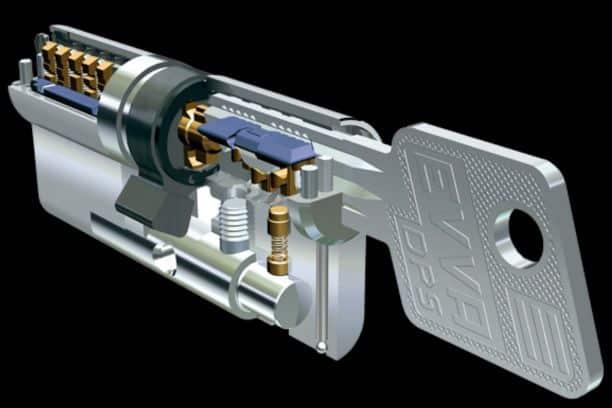Drill bits for metal are essential tools for anyone working with metal, whether you’re a professional craftsman or a DIY enthusiast. Metal is a material that demands specific tools for effective and precise work.
Unlike wood or plastic, metal presents unique challenges due to its hardness and density. This makes selecting the right drill bit not just a matter of convenience, but a necessity for quality work and tool longevity.
Understanding how to choose the correct drill bit for your metal project is crucial.
Our update today will explore the various types of drill bits suitable for metalwork. We’ll discuss the factors you should consider when selecting a drill bit, such as the metal’s hardness, the drill bit’s material, and the size and shape of the bit.
Understanding Metal Drilling
Drill bits for metal are designed to tackle the unique challenges of working with various metal types. Drilling metal is distinct from drilling other materials, materials, like wood or plastic.
Metals are generally much harder and denser, which requires bits made of stronger materials and designed for higher resistance to heat and wear.
Different Challenges in Metal Drilling
When drilling through metal, the primary challenges include the material’s hardness and the potential to generate a lot of heat. Metals like steel, aluminum, and copper each have different levels of hardness, which can greatly affect the drilling process.
A harder metal, such as stainless steel, requires a drill bit that is more robust and resistant to heat, as compared to softer metals like aluminum.
Common Types of Metals
It’s important to understand the types of metals commonly encountered in projects. Here are a few examples:
- Steel: Often used in construction and manufacturing, steel can vary in hardness.
- Aluminum: Known for being lightweight and soft, making it easier to drill.
- Copper: Used in plumbing and electrical work, copper is relatively soft and malleable.
Understanding the properties of the metal you’re working with is crucial in selecting the appropriate drill bit. A bit that’s perfect for a soft metal like aluminum might not even scratch the surface of a harder metal like stainless steel.
Drill Bits for Metal: How to Drill Metal
Choosing the right drill bits for metal is vital for effective and efficient drilling. There are several types, each designed for specific metals and drilling tasks.
HSS (High-Speed Steel) Drill Bits
- Features: Made from high-speed steel, these bits can withstand high temperatures.
- Best Uses: Ideal for general metal drilling tasks, especially in softer metals like copper and aluminum.
Cobalt Drill Bits
- Advantages: Cobalt bits are tough and heat-resistant.
- Best For: These are perfect for drilling through tough metals like stainless steel and cast iron.
Titanium-Coated Drill Bits
- Benefits: The titanium coating extends the bit’s life and reduces friction.
- Longevity: These bits are great for frequent use, especially on softer metals.
Carbide-Tipped Drill Bits
- Usage: Best for heavy-duty tasks and very hard metals.
- Durability: Carbide tips maintain sharpness longer, making them suitable for prolonged use in tough conditions.
What’s the Best Type of Adhesive for Vinyl Floors?
Step Drill Bits
- Unique Design: These bits have a stepped profile, useful for drilling holes of varying sizes.
- Applications: Ideal for thin metals, these bits create clean and precise holes.
Each type of drill bit offers distinct advantages depending on the metal type and the project’s requirements.
Factors to Consider When Choosing a Drill Bit for Metal
Selecting the right drill bits for metal involves considering several key factors. The choice you make can significantly impact the efficiency and outcome of your drilling task.
Metal Hardness
- Matching Drill Bit to Metal Type: Harder metals like stainless steel require tougher drill bits such as cobalt or carbide-tipped. Softer metals, such as aluminum, can be effectively drilled with HSS or titanium-coated bits.
- Importance of Correct Match: Using the wrong bit for a metal can lead to poor results and potentially damage both the bit and the metal.
Drill Bit Size and Shape
- Size Matters: Ensure the bit size matches the hole you intend to drill. Using a bit that’s too large or small can cause problems.
- Shape and Angle: Different angles and shapes are suited for different metals and drilling styles. For example, a split point bit can start drilling faster and with less force.
Drill Speed and Lubrication
- Adjusting Speed: Harder metals usually require a slower drilling speed to reduce heat and wear on the bit.
- Lubrication: Using a cutting fluid can help reduce heat and extend the life of the drill bit. This is particularly important for prolonged drilling or when working with harder metals.
Understanding these factors ensures that you choose the most suitable drill bit for your metal project.
Tips for Successful Metal Drilling
Having the right drill bits for metal is just the start. To ensure successful drilling in metal, follow these practical tips.
Pre-Drilling Considerations
- Marking Your Spot: Use a center punch to mark where you’ll drill. This prevents the drill bit from wandering.
- Starting Your Drill Hole: Begin with a small pilot hole before drilling the final size. This helps in precision and control.
Steady Pressure and Correct Speed
- Applying Pressure: Use steady, moderate pressure when drilling. Too much force can break the bit, while too little can lead to inefficient drilling.
- Speed Control: Use a slower speed for harder metals. This reduces heat build-up and prolongs the life of your drill bit.
What kind of Drill Bits do I Need for Brick or Concrete?
Cooling and Lubrication
- Importance of Cooling: Metal heats up quickly when drilled. To prevent overheating, pause regularly and allow the bit to cool.
- Lubrication Tips: Apply a cutting fluid or oil to the drill bit and metal surface. This reduces friction and heat, making the drilling smoother.
Safety Precautions
- Wear Protective Gear: Always use safety glasses and gloves when drilling metal.
- Secure the Metal: Clamp down the metal piece to prevent it from moving while you drill.
By following these guidelines, you can enhance the effectiveness of your drill bits for metal, ensuring a smoother and safer drilling experience.
Maintenance and Care for Metal Drill Bits
Proper maintenance of your drill bits for metal is crucial for their longevity and performance. Here’s how to keep them in top shape.
Cleaning and Storing Drill Bits
- Regular Cleaning: After each use, clean your drill bits to remove any metal shavings or debris. A simple wipe with a rag can suffice.
- Proper Storage: Store your drill bits in a case or holder. This protects the edges from damage and keeps them organized.
- Knowing When to Sharpen: Look for signs of dullness or difficulty in drilling. A dull bit requires more force and generates more heat.
- How to Sharpen: Use a bench grinder or a drill bit sharpener. Follow the original angle of the bit for consistent performance.
When to Replace Drill Bits
- Signs of Wear: Over time, bits can become too worn or damaged to be effectively sharpened. Look for cracks, significant dullness, or wear on the cutting edges.
- Replacing Bits: It’s better to replace a bit than to risk a poor drilling outcome or potential injury.
Taking good care of your drill bits will not only extend their life but also ensure they are ready and effective for your next metal drilling project.
The right choice and maintenance of drill bits for metal can greatly affect the quality and ease of your work.
How Drywall Works | Full Guide and Details
Frequently Asked Questions
It’s not recommended. Wood drill bits aren’t designed to withstand metal’s hardness and can become dull or break.
Sharpen them when you notice a decrease in performance. This frequency depends on how often you use them and the hardness of the materials.
While possible, it’s not advisable. Lubrication reduces heat and friction, prolonging the life of the drill bit.
Yes, thicker metals require more patience and a slower drilling speed to prevent overheating and damage to the drill bit. For thin metals, step drill bits are often recommended for cleaner and more precise holes.
Conclusion
Selecting the right drill bits for metal is crucial for achieving precision and efficiency in your metalwork projects. We’ve explored various aspects, from understanding the unique challenges of metal drilling to choosing the appropriate type of drill bit for different metals.
Key considerations such as metal hardness, and drill bit size, and we have highlighted the importance of proper speed and lubrication to enhance your drilling experience. Additionally, we’ve emphasized the importance of regular maintenance and care to extend the life of your drill bits.
With this comprehensive guide, you’re now equipped with the knowledge to tackle any metal drilling task with confidence. Remember, the right tools and techniques not only make your work easier but also ensure safety and accuracy in all your metalworking endeavors.
References
What is the Right Way to Drill Metal? – www.thyssenkrupp-materials.co.uk




